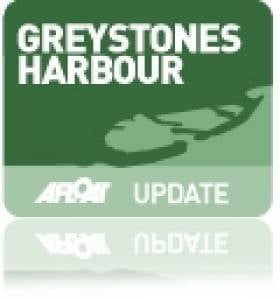Displaying items by tag: seawalls
Greystones Harbour Facilities to be Complete by End 2011
Tuesday nights Greystones Town Council meeting was informed by Greystones harbour developer Sispar that the major work on the seawalls would be complete at the end of November 2010.
Following this, construction of the Health Centre, public square and Community buildings for the Sea Scouts, Rowers, Anglers, Divers and Sailors will start in January and should be complete in December 2011.
The hoardings which have blocked the view of the harbour and proposed marina will be taken down as these works are completed in 2011.
Local councillor Derek Mitchell (and a Ruffian keelboat champion) told Afloat.ie: "I welcome this as Greystones had been trying to get the harbour rebuilt for over a hundred years and this will create the best Community Harbour in Ireland".
Councillor Mitchell adds "The developer has applied to change some of the housing and add 34 houses to the North. Wicklow County Council is to vote on this in December. These houses may not be built yet, depending on the housing market, but access will be provided across the site to the North Beach and the new swimming beach there"
"The meeting was also told that the loan would be going in to NAMA, as all loans will, however this is not expected to make any difference to the project", he added.
Councillors asked for more Community tours so that people could see what has been achieved.





























































